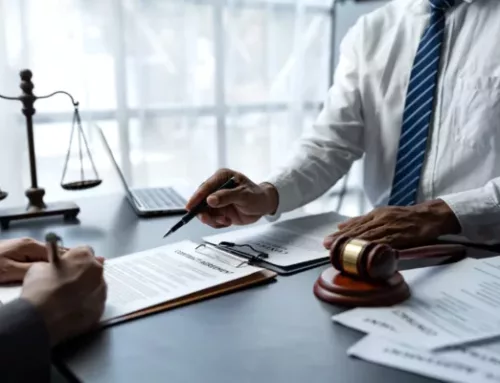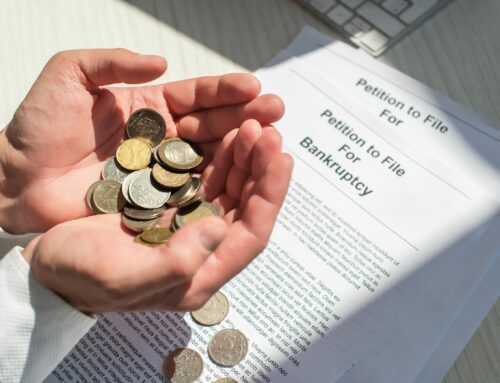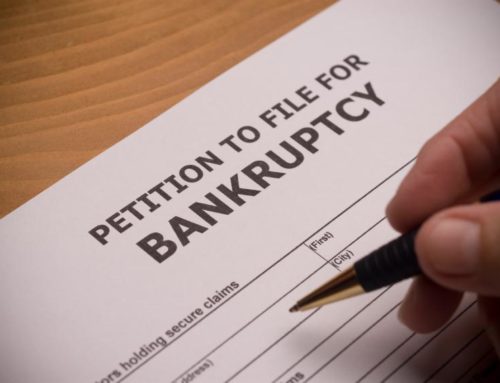Bankruptcy is an option offered by the government to debtors who are unable to get out of debt on their own. It is a legal proceeding designed to give those who are financially bankrupt to get some debt relief and a fresh start. Federal law provides individuals and businesses the right to file for bankruptcy. For this reason, bankruptcy cases are addressed in federal court.
A bankruptcy filing triggers an automatic stay. This is a form of bankruptcy protection that halts all debt collection attempts from creditors, collection agencies, and other debt collectors until the debtor has satisfactorily sorted out his or her debts according to bankruptcy law.
The Different Types of Bankruptcy
 The bankruptcy code has four main bankruptcy chapters.
The bankruptcy code has four main bankruptcy chapters.
- Chapter 7 (liquidation). Filing for bankruptcy under this chapter requires the filer to surrender nonexempt assets so the bankruptcy trustee can liquidate them to generate funds to pay back creditors.
- Chapter 11. This bankruptcy chapter is for businesses and individuals with an exceptionally large debt.
- Chapter 12. This filing chapter is specifically for family farmers.
- Chapter 13 (reorganization). Bankruptcy filings under this chapter require debtors to create a payment plan to pay off debts or parts of debts using their current monthly income.
Most debtors filing bankruptcy do so under either Chapter 7 or Chapter 13. This can be done either individually or jointly by married couples.
The Benefits of Bankruptcy
It may involve an unfortunate situation but filing bankruptcy makes the following possible for a debtor:
- Get a bankruptcy discharge. This eliminates the legal obligation to pay all discharged debts.
- Stop foreclosure. Although bankruptcy does not automatically remove mortgages and other liens on their houses or mobile homes without payment, filers are given the chance to catch up on those missed payments.
- Prevent repossession. Bankruptcy allows the debtor the opportunity to continue paying for a car or other personal property involved in unpaid secured debt.
- Get respite from harassment. Bankruptcies effectively stop wage garnishment and similar aggressive debt collection efforts.
- Continue getting utility services. In bankruptcy, debtors are protected from termination of water, gas, and electricity.
- Challenge fraudulent or unreasonable claims. Creditors who are trying to collect beyond what is owed them or who have downright committed fraud will be addressed in bankruptcy court.
Limitations of Bankruptcy
There are certain financial problems that bankruptcy cannot solve. What are some of the things that bankruptcy cannot do?
- Eliminate secured creditors’ rights. A secured creditor is one who has taken collateral for a loan, e.g. car loans and property mortgages. While bankruptcy may force these creditors to accept payments in the duration of the bankruptcy process, which may take three to five years, or may eliminate any obligation from the debtor to pay additional money if the collateral is surrendered, it does also protect creditors rights.
- Discharge certain types of debt. Alimony, child support, student loans, certain taxes, criminal fines, and court restitution orders are some of the debts that cannot be discharged.
- Protect the cosigner on a debt. The filer may no longer be obligated to pay a discharged debt, but his or her cosigner may still have to repay a portion of it.
- Discharge debts made after bankruptcy has already been filed. These wouldn’t have been included in the bankruptcy forms submitted and the bankruptcy information provided.
Property Ownership after Bankruptcy
It is not true that people may not own anything for a period of time after filing their bankruptcy petition. Filers are allowed to hold onto any property covered by West Virginia bankruptcy exemptions and anything obtained after they have filed for bankruptcy. Nonetheless, if the debtor has received an inheritance, life insurance benefits, or a property settlement 180 days after filing, it will be included in the bankruptcy estate and may be used to pay debts if it is not exempt.
Discrimination against Bankruptcy Filers
Government agencies and private organizations are prohibited by federal bankruptcy law from discriminating against those who have filed bankruptcy or have been absolved from paying a dischargeable debt.
Considering Bankruptcy? Consult a West Virginia Bankruptcy Attorney Today!
If you’re thinking of declaring bankruptcy, the best thing to do is to talk to a bankruptcy lawyer to see if it’s the right solution for you. For legal help and advice on bankruptcy matters, call the law office of Thomas E. McIntire & Associates, L.C. to speak with an experienced bankruptcy attorney.





